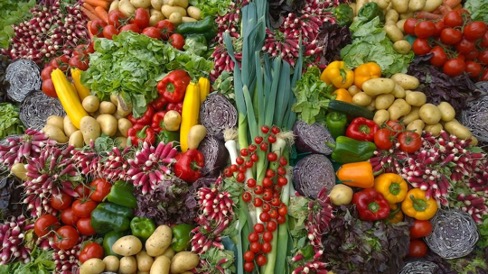Homestead Hints: How To Stock up Your Pantry
Oct 29, 2023 20:58
Have you ever wondered how our ancestors stored their food and managed their kitchens? Do you wish to be self-sufficient and prepared in case of emergencies? If yes, then homestead living might be your calling. To maintain a flavorful transition, you can consider some long-life specialty foods such as Roundhouse Provisions by Chuck Norris. Below, we will explore the importance of a well-stocked homesteading pantry, what essential items to store, and how to do so on a budget.
Understanding What Homesteading Is

Homesteading is a lifestyle of self-sufficiency. It revolves around producing your food and even many of your household necessities. It's anchored in the principles of sustainability, resilience, and independence.
This mode of living was popularised during the 19th-century Western settlement movement in the United States when the government encouraged rapid Western expansion by providing free land to settlers.
Nowadays, homesteading can occur anywhere; it could be an urban apartment, a suburban block, or a sprawling rural property. In essence, it's not about where you're located but embracing the principles of self-reliance and sustainability.
The homesteading culture enables a satisfying connection to the earth, encourages healthier living, and fosters a better understanding of where your food comes from.
The Importance of a Well-Stocked Pantry in Homesteading
A well-stocked pantry is a linchpin of the homesteading way of life. It ensures consistent access to food through the unpredictability of seasons, weather events, health issues, or other unforeseen circumstances.
Having a store of food also helps in managing household expenses. By buying in bulk and cooking at home, you avoid the premium costs and health risks of processed food.
Moreover, your pantry isn’t just limited to food. It can also include household necessities like soap, candles, toilet paper, or whatever else you might need for daily living.
Planning your pantry well can provide convenience, savings, and peace of mind, allowing you more time to focus on the other key aspects of homesteading.
Essential Items For Your Homestead Pantry
Fresh produce from your garden, grains, legumes, dried herbs and spices, canned goods, flour, sugar, salt, cooking oil, and vinegar—these are some of the pantry essentials for a homesteader.
Besides, you might want to include honey, pasta, sauces, tea/coffee, baking items, powdered milk, and canned meat and veggies. Don't forget your non-edible necessary items like toiletries, cleaning supplies, and first aid kit essentials.
It's also worth noting that your pantry should match your eating habits. A pantry full of beans and pasta will not serve its purpose if you despise these foods.
Ways To Stock Your Pantry on a Budget

Stocking your pantry doesn’t have to break your bank. Firstly, plan what your family eats most and buy those items in bulk during the sale season.
Secondly, consider buying from local farmer’s markets or wholesale stores focusing on locally produced food. This not only saves you money but also supports local producers and reduces your carbon footprint.
Start growing your fruits, vegetables, and herbs as per your household's taste and consumption. This reduces your reliance on supermarkets and provides you with fresher and healthier alternatives.
Don't resist collecting and storing rainwater, and preserving excess garden produce can also reduce expenses.
How To Manage and Rotate Your Pantry Stocks
Properly storing and rotating your pantry stock ensures it doesn’t spoil before you have a chance to use it. For this, follow the old retailer's rule of "first-in/first-out."
Do regular audits of your pantry. Keep a check on items that are close to their expiration dates. This offers opportunities to use these items before they spoil.
Lastly, maintain a pantry list on your refrigerator or in a designated place. This not only helps to identify what needs restocking but also prevents impulse purchases of items already available.
Altogether, stocking your pantry effectively and sustainably not only serves your homestead living but also offers financial and health benefits. It equips you with the necessary items required for your household, offering you tranquility and resiliency, regardless of outside circumstances.







































































